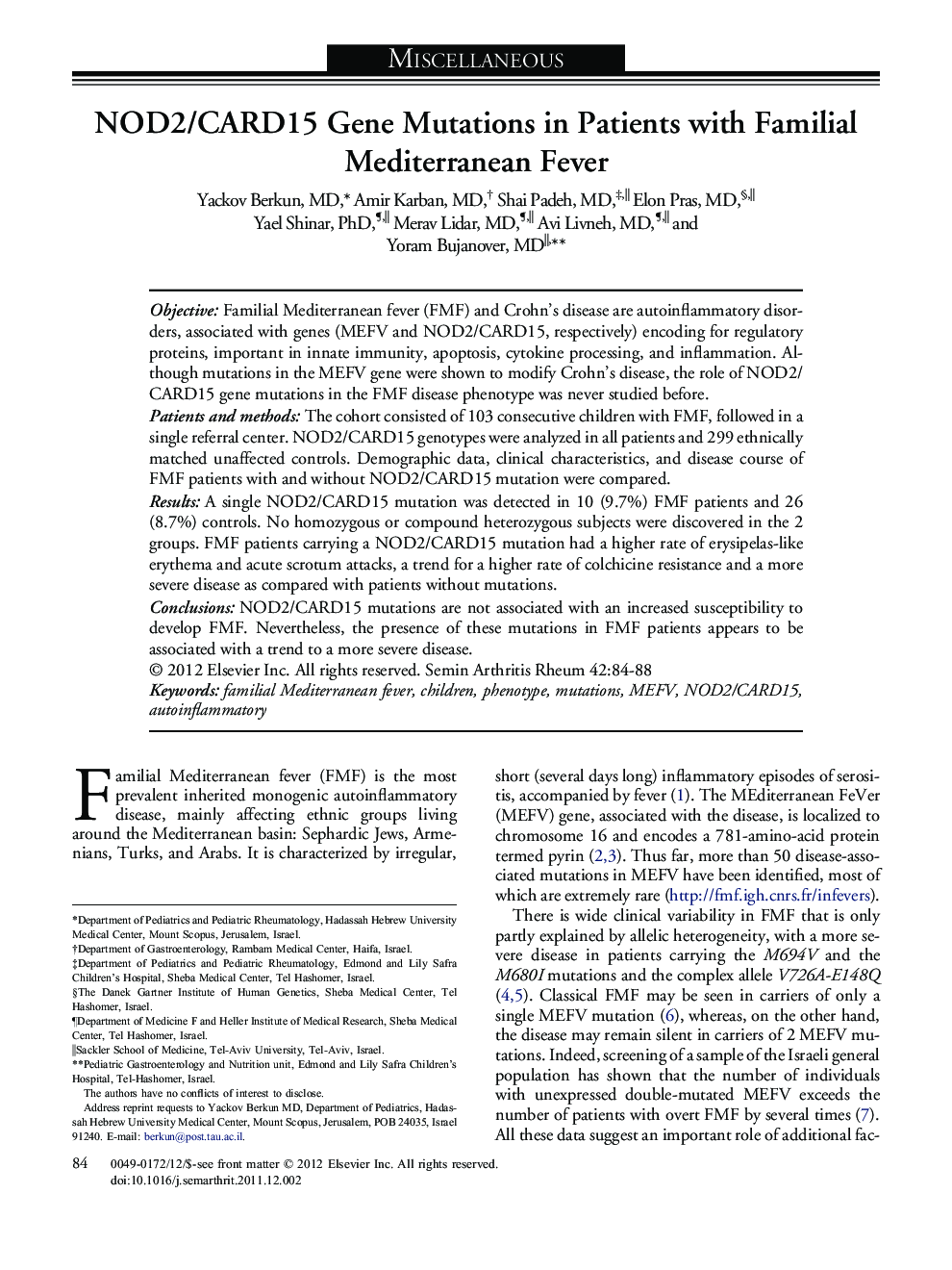| Article ID | Journal | Published Year | Pages | File Type |
|---|---|---|---|---|
| 2771550 | Seminars in Arthritis and Rheumatism | 2012 | 5 Pages |
ObjectiveFamilial Mediterranean fever (FMF) and Crohn's disease are autoinflammatory disorders, associated with genes (MEFV and NOD2/CARD15, respectively) encoding for regulatory proteins, important in innate immunity, apoptosis, cytokine processing, and inflammation. Although mutations in the MEFV gene were shown to modify Crohn's disease, the role of NOD2/CARD15 gene mutations in the FMF disease phenotype was never studied before.Patients and methodsThe cohort consisted of 103 consecutive children with FMF, followed in a single referral center. NOD2/CARD15 genotypes were analyzed in all patients and 299 ethnically matched unaffected controls. Demographic data, clinical characteristics, and disease course of FMF patients with and without NOD2/CARD15 mutation were compared.ResultsA single NOD2/CARD15 mutation was detected in 10 (9.7%) FMF patients and 26 (8.7%) controls. No homozygous or compound heterozygous subjects were discovered in the 2 groups. FMF patients carrying a NOD2/CARD15 mutation had a higher rate of erysipelas-like erythema and acute scrotum attacks, a trend for a higher rate of colchicine resistance and a more severe disease as compared with patients without mutations.ConclusionsNOD2/CARD15 mutations are not associated with an increased susceptibility to develop FMF. Nevertheless, the presence of these mutations in FMF patients appears to be associated with a trend to a more severe disease.
